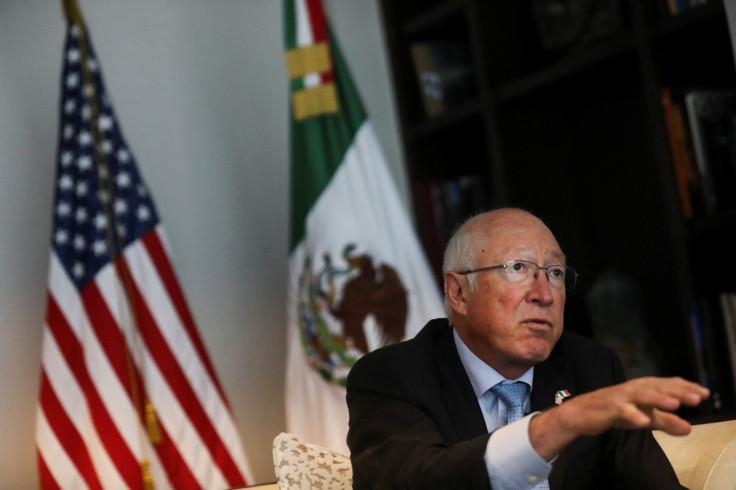
More than three months after being captured by U.S. authorities in Texas, top drug lord Ismael "El Mayo" Zambada's case continues to be a main topic of conversation between Mexican and American officials. Since Zambada's capture in July, both governments have gone back and forth over conflicting narratives surrounding the indicent.
The case took another turn this week, with U.S. Ambassador to Mexico Ken Salazar responding to Mexico's Attorney General Alejandro Gertz Manero over claims that Mexico is still waiting on information that led to Zambada's arrest, such as the pilot's identity, the plane's arrival in the U.S. and wjhich American officials knew of Joaquín Guzmán López's plans to turn himself in and betray his godfather Zambada.
During a press conference, the Mexica Attorney General said the U.S. has provided its Mexican counterparts with some of the information, "but an essential part is still missing." Gertz added that the "kidnapping is proven," adding that Joaquín Guzmán López, son of "El Chapo" Guzmán is the main suspect. But some of the missing pieces of the puzzle, such as the pilot's information as well as to why a "cloned" aircraft was allowed to enter U.S. territory remain unsolved.
"It is fundamental that the pilot is identified," Gertz said. "Because no pilot and no aircraft can land at an American airport if they do not comply with a list of requisites that are mandatory for everyone," he added.
Salazar rejected the claim, calling a press conference to outline a timeline of high-level communications between the two governments since Zambada's arrest.
Salazar presented at least five letters from senior U.S. officials to their Mexican counterparts on the ongoing investigation, as reported El País. While addressing the media, Salazar said that communications began the day of the arrest with a message from U.S. Attorney General Merrick Garland to Gertz Manero, followed by a call between both officials two days later.
But instead of addressing Gertz's concerns, Salazar focused on the pressure applied on cartel leaders that led to the captures of Zambada and Guzmán López, arguing that the surrender of one of the sons of "El Chapo" "is a victory for both countries."
In another letter, U.S. Secretary of State Anthony Blinken told his then-Mexican counterpart Alicia Bárcena that the events were the result of the "conflict between criminal groups and the immense pressure that the Mexican authorities, with the support of the United States, have exerted on the cartel figures in recent years."
In the letter, Blinken assured Bárcena that the U.S. did not conduct an operation on Mexican soil and that the pilot was neither employed or contracted by the U.S. nor an American citizen.
© 2025 Latin Times. All rights reserved. Do not reproduce without permission.





